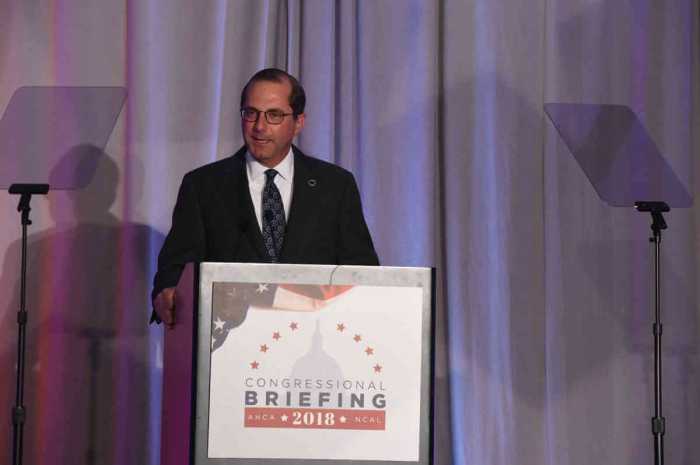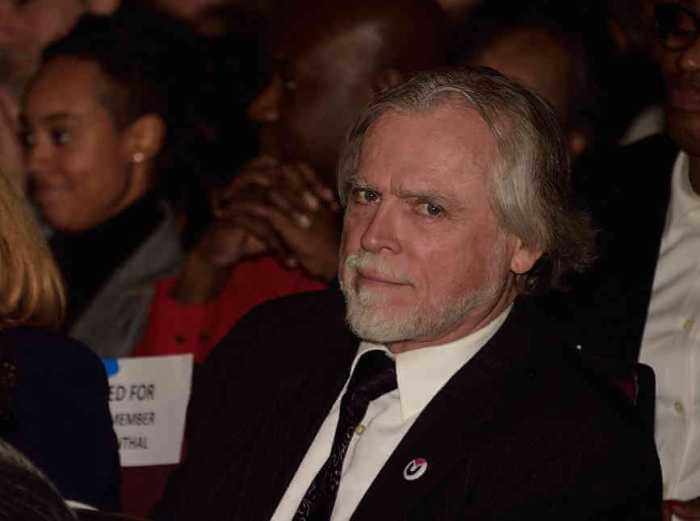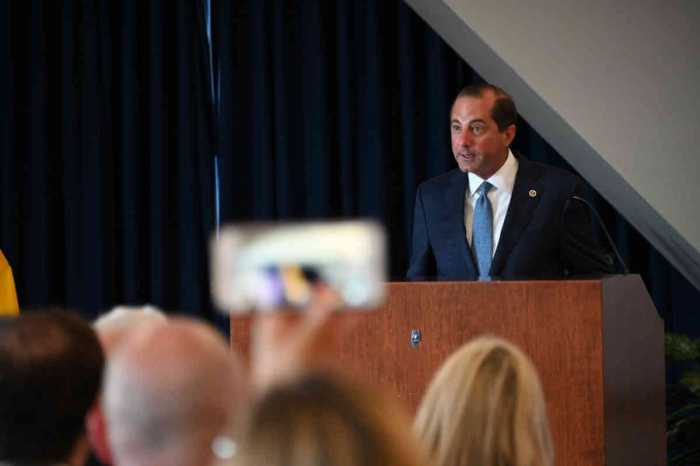BY DUNCAN OSBORNE | Gary English is on PrEP.
“One of the main reasons is I want to continue to be negative,” the 54-year-old English told Gay City News during an interview at a friend’s home in Brooklyn’s Bedford-Stuyvesant neighborhood. “As a person who wants to continue to be sexually active, as a mature man, this is one of the tools in the toolbox.”
English is a part of a group of gay black activists who founded the Black LGBT Alliance of New York, which aims to revive HIV prevention efforts among black gay men including using pre-exposure prophylaxis, or PrEP, an anti-HIV drug for HIV-negative people to keep them uninfected. PrEP is highly effective when taken correctly.
Gary English, former head of People of Color in Crisis, cites personal and public health education reasons
English headed People of Color in Crisis (POCC) from 1997 to 2007. The Brooklyn AIDS group was lauded for Many Men, Many Voices, its comprehensive HIV prevention program, its annual Pride in the City event, and for its role in founding the Black Gay Research Group. In 2003, POCC, which was founded in 1989, co-sponsored the first Black Gay Research Summit. POCC was forced to close in 2008 after Michael Roberson, its executive director in 2007 and 2008, was caught stealing government funds. Activists also saw the New York State Black Gay Network shut down.
“It’s unfortunate that we lost so much ground,” English said. “If those two agencies were still open, we would be further along.”
For activists, such as English, who once played a central role in formulating and executing HIV prevention efforts among black gay men in New York City, watching the roll out of New York’s Plan to End AIDS has been a frustrating experience. The plan aims to reduce new HIV infections in the state from the current roughly 3,000 annually to 750 a year by 2020. The plan will rely largely on PrEP and other drug interventions to achieve that goal.
The task force that drafted the plan included just two black gay men among its 63 members. None of the existing organizations in New York that specifically serve black gay men was represented on the task force though some of their recommendations were included in the plan. And they are not seeing the outreach to apprise black gay men of the latest developments in HIV prevention, such as PrEP.
“If the Cuomo administration is serious about ending the epidemic by 2020, they have to reengage the black gay community,” English said. “If we leave out the black LGBT leadership, it’s not going to happen because we know how to access our community.”
Over 90 percent of the new HIV diagnoses in New York are in New York City. In the first half of 2014, there were 1,350 new HIV diagnoses in the city and 1,088 were among men, according to city health department data. Forty-six percent of all new diagnoses were among African-Americans and 30 percent were among Latinos. By demographic groups, 793, or nearly 59 percent, of the new diagnoses were among men who have sex with men. However the math is done, if new HIV diagnoses among black gay men are not reduced substantially, the Plan to End AIDS fails. The same is also true of Latino gay men.
The Black LGBT Alliance has a $150,000 contract that is jointly funded by the city and state health departments to develop pro-PrEP messaging that will target black gay men. The Alliance is working on the contract with the National Black Leadership Commission on AIDS. The groups will conduct 25-person focus groups in six locations across the state, and they expect to issue a final report in early 2016. The goal is to determine “what type of messaging is appropriate for black men who have sex with men,” English said.
While English has personal reasons for going on PrEP, he also has what might be called public health reasons — he wants black gay men to see that becoming HIV-positive is not inevitable or a matter of luck and that they can take charge of their lives and bodies.
“As a person who is on PrEP, I’m saying ‘I’m negative and you can stay negative as well,’” English said. When he talks about PrEP to his peers, they can be perplexed.
“It seems they’re confused,” he said. “I tell them I’m on PrEP, they think I’m HIV-positive.”
Men can be “apprehensive,” English said, and concerned that they will be mistaken for HIV-positive or that there may be side effects. English has heard some discussion that PrEP is some sort of medical experiment.
“I think that by my telling them that I’m on it, they’re relieved,” he said.
English had his own struggles with PrEP. He first visited a community health center in Brooklyn to get access to the drug. Staff there had never heard of the intervention.
“They didn’t know what PrEP was, and I sat down and I explained it to them,” English said. He ended going to the Callen-Lorde Community Health Center in Chelsea and is now seeing a private doctor for the quarterly screenings for sexually transmitted diseases and blood work that are part of the PrEP regimen.
“Negative men are in the closet in HIV prevention,” English said. “For a long time, it’s been only the positive men and that’s not fair to them to make them carry that burden.”




































